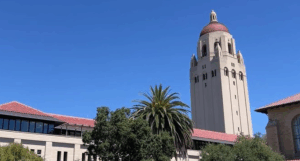On April 14, the Trump administration announced the suspension of more than $2.2 billion in federal grants and $60 million in contracts to Harvard University due to the institution's refusal to comply with federal mandates aimed at reforming its policies. The White House’s demands included the dismantling of Diversity, Equity, and Inclusion (DEI) programs and a shift to merit-based admissions, alongside increased cooperation with immigration authorities and intensified action against campus antisemitism.
Federal Funding Freeze on Harvard Signals Shift in Higher Education Dynamics

Federal Funding Freeze on Harvard Signals Shift in Higher Education Dynamics
The Trump administration's decision to halt over $2.2 billion in federal funding for Harvard has sparked a fierce debate over academic freedom and government influence in education.
In response, Harvard President Alan Garber declared the university would not compromise its independence or its constitutional rights. In a letter addressed to the university community, he underscored that no government should dictate the operations or educational approaches of private institutions, depicting the funding freeze as a direct challenge to academic freedom.
This financial sanction is not an isolated incident but a part of a broader initiative targeting elite universities, with institutions like Columbia University also attributing similar potential financial repercussions for not adhering to federal guidelines. As anticipated, legal disputes are likely to arise. Critics of the administration's move have highlighted concerns over First Amendment infringement, while supporters argue that the accountability accompanying federal funding is necessary, especially with issues surrounding civil rights and extremist ideologies.
The actions taken by the Trump administration signal a profound transformation in the relationship between the federal government and higher education, marking just the initial steps in an ongoing confrontation over policy and funding.
This financial sanction is not an isolated incident but a part of a broader initiative targeting elite universities, with institutions like Columbia University also attributing similar potential financial repercussions for not adhering to federal guidelines. As anticipated, legal disputes are likely to arise. Critics of the administration's move have highlighted concerns over First Amendment infringement, while supporters argue that the accountability accompanying federal funding is necessary, especially with issues surrounding civil rights and extremist ideologies.
The actions taken by the Trump administration signal a profound transformation in the relationship between the federal government and higher education, marking just the initial steps in an ongoing confrontation over policy and funding.




















